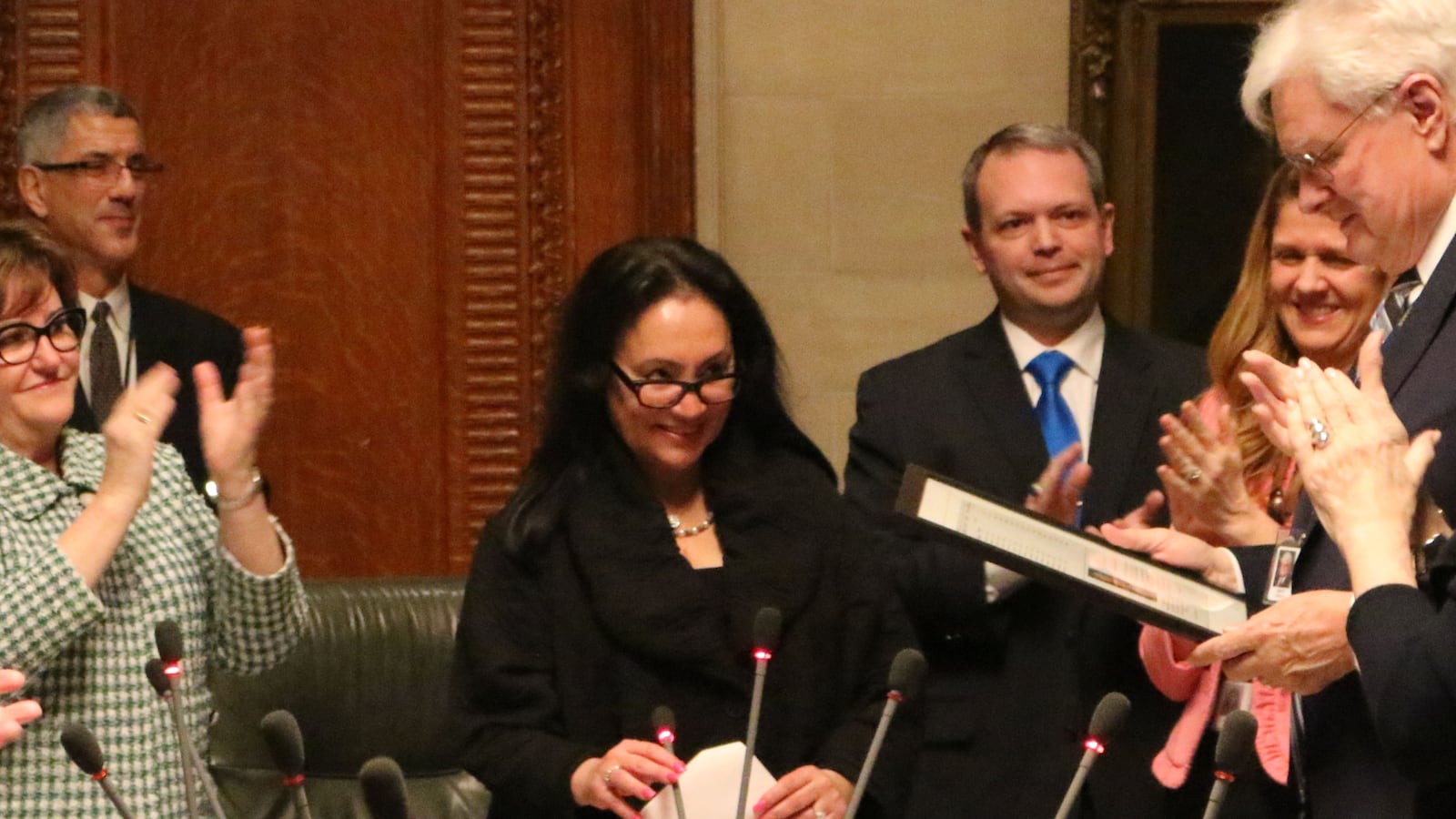New York State’s top education policymakers took a whirlwind tour Monday of their own accomplishments this year, kicking off a two-day retreat full of presentations and updates.
The briefings, conducted by top education department officials, served as a distillation of some top policy goals among the Board of Regents: rolling back graduation requirements, creating new graduation pathways, cutting back on state testing, and even rethinking how the board evaluates the charter schools it oversees.
Monday’s discussions largely tread on familiar territory, but here are three of the key issues they discussed.
Testing
New York State continues to be a hotbed of controversy surrounding testing, with roughly one in five students opting out of the 3-8 math and reading exams in recent years (the number is far smaller in New York City).
In response to concerns about the length of the exams, the Regents reduced the number of testing days for each exam from three to two — a change that went into effect this year. Education officials touted those changes Monday while stressing that they have gone out of their way to involve educators in the process of crafting exam questions.
“One of the things I believe is a major adjustment in New York is the extent to which teachers across New York are involved,” state education MaryEllen Elia told the board, noting that 75 percent of the test questions are released to the public. “We have to constantly be asking ourselves what can we do better.”
Still, some Regents continued to express concerns about the exams, including whether they are fair to English learners, and whether the tests themselves help perpetuate disparities.
“What research is used about what’s developmentally appropriate?” Regent Judith Johnson asked. “Is it possible to have a test question that is culturally neutral?”
Charter schools
The Regents are currently discussing changes to the way they evaluate the charter schools they oversee, including taking a deeper look at suspension rates compared to traditional district schools, and tracking why students leave.
“There are charter chains that might have 25 percent of the students when they first started and they’re claiming great growth,” Regent Kathleen Cashin said during Monday’s discussion, adding that questions about why students leave shouldn’t be “buried.”
The discussion highlights a tension in the board’s discussion of the publicly funded, privately managed schools. On the one hand, board members are often quite critical — worrying some within the charter sector. But on the other hand, they have still approved large batches of new charters, including at their most recent meeting.
And the debate will continue in the fall: The Regents are expected to consider a proposal for changing the way charter schools are evaluated at their September meeting.
Students with disabilities
The board also heard from state officials about efforts to improve access to programs for students with disabilities, including those in preschool.
As Chalkbeat has previously reported, there is a shortage of seats for preschool special education students — with students often languishing at home without education services, a problem that advocates say has only gotten worse. Part of the issue, officials say, is they don’t have a way of quickly tracking supply and demand for those programs, which are often provided by private organizations.
Instead, state officials rely on phone calls and informal surveys, which can make it difficult for officials to quickly respond to shortages. Now, state officials are in the process of implementing a new data system for tracking students and open seats.
“We need to move from our current reactive system,” Christopher Suriano, an assistant commissioner of special education told the board. “We have to start reacting proactively to make sure we have capacity.”
Grab bag
- The Regents spent some time talking about how to measure “civic readiness” which will be a component of how schools are judged under the state’s ESSA plan.
- New data released by state officials shows that at least 500 students with disabilities graduated this year as part of a new policy that lets superintendents review their performance in lieu of passing all of the Regents exams. Though officials cautioned that the data are preliminary, and the number is likely to increase, that’s up from 315 students during the previous year.

